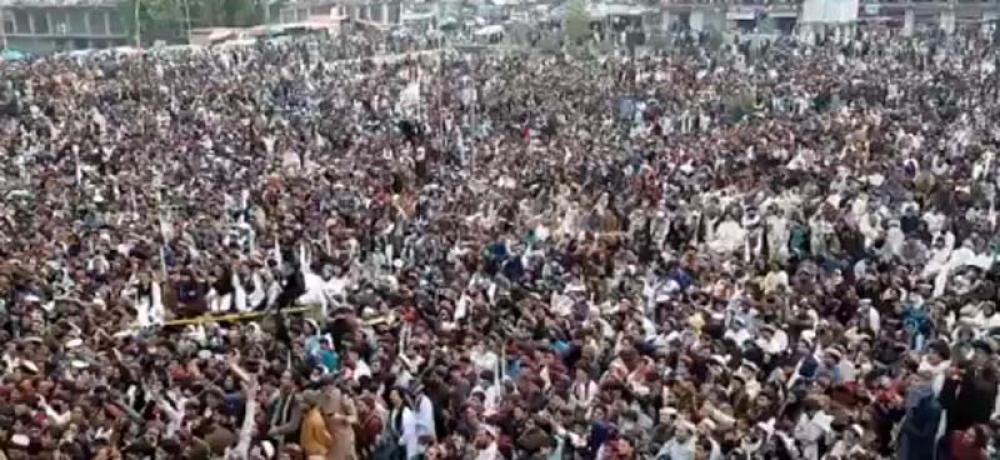Just Earth News | @justearthnews | 15 Nov 2020, 09:56 am Print
 Pashtun Tahafuz Movement
Pashtun Tahafuz Movement Zahir Baba Twitter video grab
Islamabad/UNI: Thousands of Pashtuns held a massive gathering under the banner of Pashtun Tahaffuz Movement (PTM) at the North Waziristan agency of Khyber Pakhtunkhwa province of Pakistan on Sunday.
This show of strength by the Pashto tribesmen was to protest against the Pakistan governments repressive policies especially arbitrary detentions, enforced disappearances of Pashtuns.
#PashtunLongMarch2Miranshah https://t.co/CDAGtZWD5q
— Khor Bibi (خور بی بی) (@KhorBibi) November 15, 2020
Well known human rights activist Khor Bibi tweeted “Thousands of Pashtuns gathered at Miranshah in North Waziristan from all over Pashtunkhwa against state brutalities with Pashtuns.”
Videos on social media and pictures on Twitter showed thousands of people gathering to listen to PTM leaders. Though news of this massive gathering was not released in the mainstream Pakistani media.
Afrasiab Khattak, a former member of the Senate of Pakistan tweeted that "PTM is trail blazer in resistance to war state repression. Glad that other political parties have mustered the courage to point out the real usurpers.”
PTM is a rights group that has called for the de-mining of the former tribal areas and greater freedom of movement within tribal areas. PTM's young head Manzoor Pashteen has called for an end to “extrajudicial killings, enforced disappearances and unlawful detentions,” according to reports.
PTM claims at least 30,000 people from the two provinces – Khyber Pakhtunkhwa and Baluchistan – have gone missing during the past 10 years.
- Viral Irish food bank photo sparks shocking racist attacks on Indians
- Caught on camera: Two foreigners assaulted in Israel in an alleged racial attack
- Pakistan: Parents heartbroken after court sides with man accused of kidnapping minor Christian girl
- Pakistan: Trafficked 35 years ago, Bangladesh-born woman approaches court against FIA for offloading her from flight!
- Hindu tea worker found bound and bloodied in Bangladesh garden during general elections; investigation underway





-1763561110.jpg)
